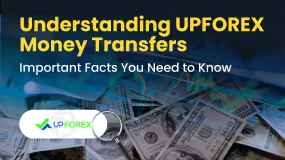Abstract:In a world increasingly driven by sentiment and speculation, few instruments offer a more sober and forward-looking perspective than bonds. Often overlooked by retail investors and sensationalist headlines, the bond market operates as a quiet but powerful barometer of economic expectations.

While investors may have been optimistic that last months financial market instability had passed, renewed fluctuations in U.S. Treasury yields indicate that market unease persists.
On Monday, the yield on long-term U.S. government bonds briefly climbed above 5%, marking its highest point since October 2023, before easing slightly.
This development came in the wake of Moody‘s decision on Friday to revise its outlook on the U.S. government’s credit rating, pointing to a decade-long rise in federal debt as a key concern.
At the same time, U.S. lawmakers are moving forward with a fiscal package that is expected to significantly expand the federal debt load, which currently stands at $36 trillion.

In a world increasingly driven by sentiment and speculation, few instruments offer a more sober and forward-looking perspective than bonds. Often overlooked by retail investors and sensationalist headlines, the bond market operates as a quiet but powerful barometer of economic expectations. From central bank policy to inflation forecasts and recession risks, yields and curves offer deep insights into where we are and where we might be headed.
At the heart of this narrative is the relationship between bond yields and interest rates. Government bonds, especially those issued by developed economies such as the United States, the United Kingdom, and Germany, are viewed as among the safest assets globally. The yields on these instruments are not merely reflective of the cost of borrowing, but they encapsulate investor sentiment, inflation expectations, and anticipated central bank actions.
Perhaps the most widely discussed phenomenon in recent times has been the inverted yield curve, that is, when long-term yields fall below short-term yields. In typical economic conditions, longer-term debt commands a higher yield, compensating investors for inflation risk and the time value of money. But an inversion suggests markets believe interest rates are set to fall, often due to an impending economic slowdown. Historically, such inversions have been reliable, albeit not immediate, predictors of recessions.
The bond market also offers real-time feedback on central bank policy. Consider the Bank of Englands struggle with sticky inflation. While policymakers may raise interest rates to combat price increases, falling yields on long-dated gilts can indicate that investors believe inflation will eventually be tamed or that aggressive tightening may overcorrect, leading to economic contraction.
Globally, the recent trend of falling yields despite relatively high policy rates is noteworthy. This may indicate a market consensus that rate hikes have peaked or that growth is expected to soften. Moreover, in economies where yields remain stubbornly high, such as emerging markets, investors may demand a premium for inflation risk, currency volatility, or political uncertainty.
Corporate bond spreads, another key metric, shed light on credit risk and business confidence. When spreads widen significantly over government bonds, it suggests rising concern about defaults or deteriorating economic conditions. Conversely, narrowing spreads are generally associated with improving risk appetite and economic optimism.
In essence, bonds act as the connective tissue between macroeconomic fundamentals and financial market expectations. Unlike equities, which can be swayed by corporate performance or investor hype, the bond market tends to focus on the long game, which includes growth, inflation, and monetary stability.
For traders, analysts, and policymakers alike, ignoring the signals emanating from the bond market comes at a cost. As the world continues to grapple with inflation volatility, geopolitical uncertainty, and shifting monetary regimes, the message from bonds may not always be loud, but it is often prophetic.











